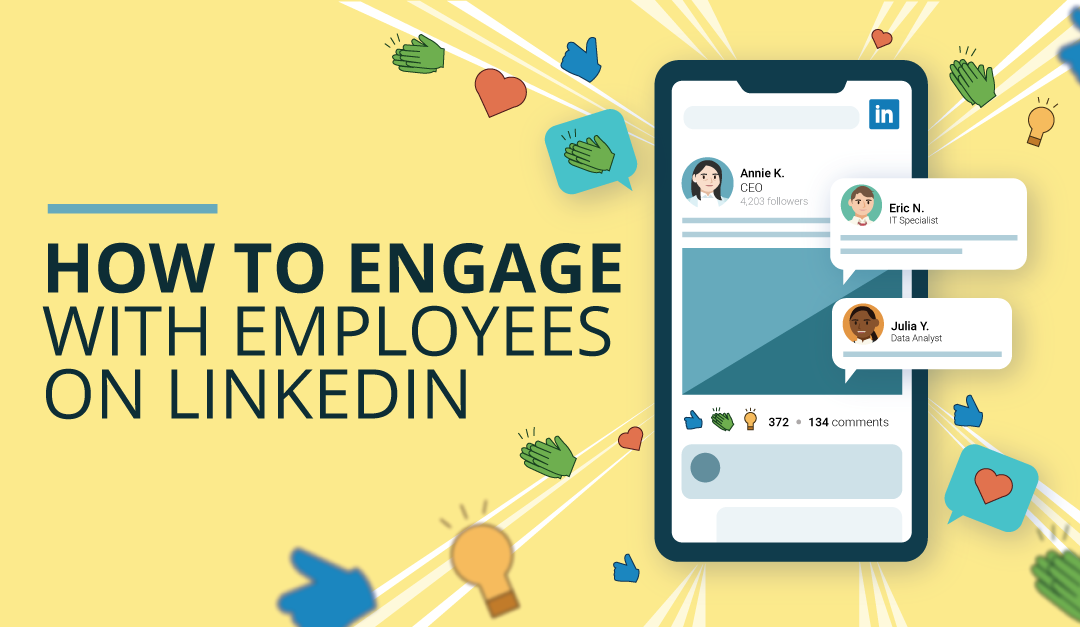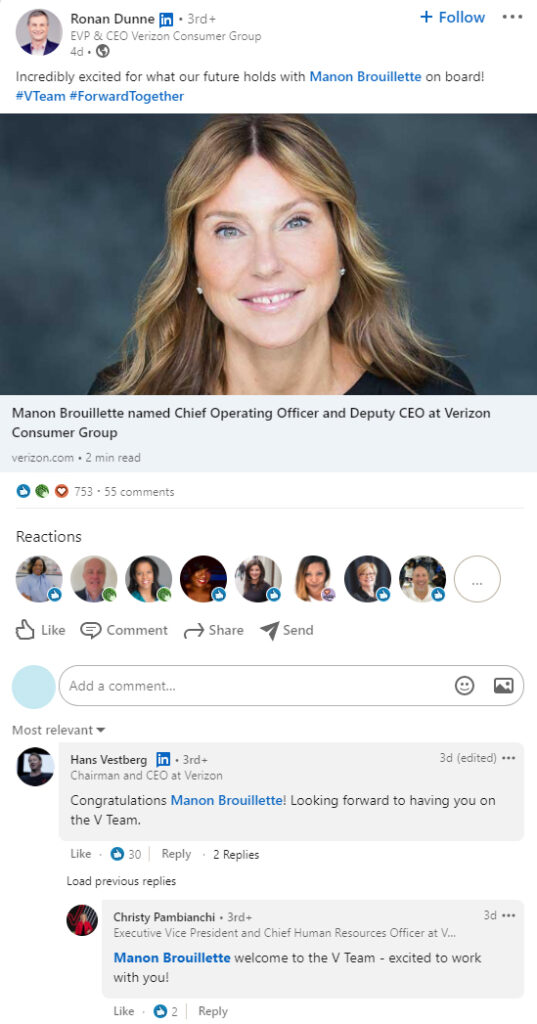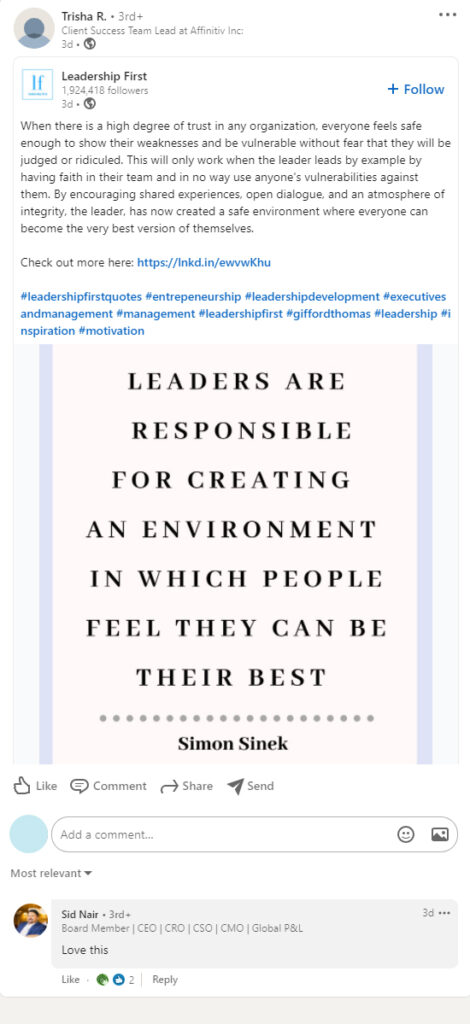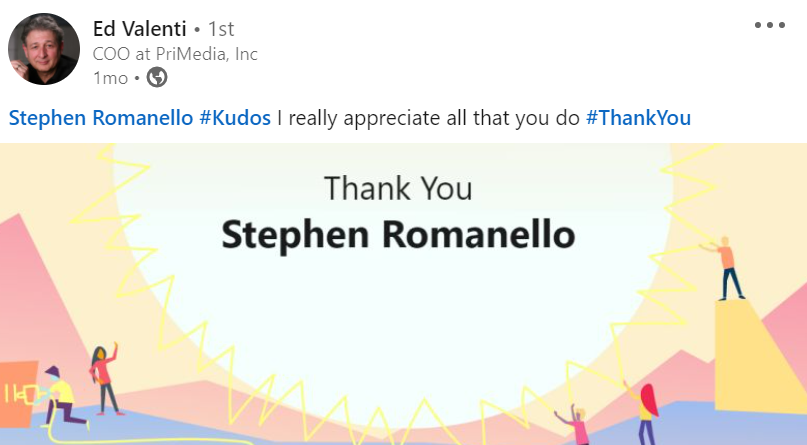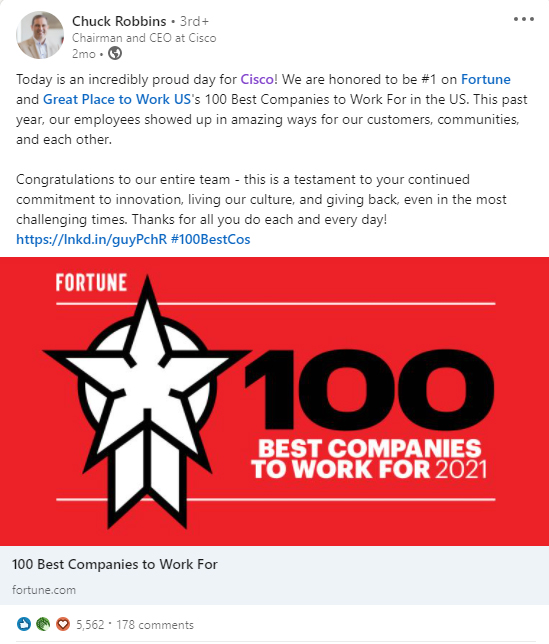As if a global pandemic was not challenging enough, now executive leaders are navigating the issues involved in transitioning employees back to the office — or extending work-at-home schedules and managing a more distributed team over the long term. This makes the art of effectively communicating with your people more essential than ever before.
A strong LinkedIn posture can be one of the best tools to help you pull it off.
More social than a corporate-housed intranet and more structured than an external collaboration platform, LinkedIn offers the ideal digital headquarters for keeping your employees engaged, included, and informed.
Given the importance of corporate culture in today’s expansive employment ecosystem, it makes good business sense to use LinkedIn to become a more approachable, engaging leader.
Read on for a few tips that will help you do so.
LinkedIn as a Communications Tool
The best way to communicate with employees is to meet them where they are — and that is on social media. With your team working at home and in a variety of locations, you need employees to feel engaged and connected to their leadership team. Social media gives you a good way to do that.
And your employees want you to use social media. According to a four-year study conducted by Brandfog, 85% of respondents said they believe CEOs should be using social media channels to improve engagement with their employees, and 93% agreed that CEOs who actively participate in social media can build better connections across the board.
When you use your voice in social media, you help employees better understand who you are, what you care about, and how you spend your day. This helps you build trust and credibility, which are two vital pillars of any inclusive corporate culture.
And speaking of culture, using LinkedIn for employee communications allows you to showcase what your company stands for — in a very public manner.
Using the platform as a vehicle for telling stories, aligning teams, and promoting your initiatives reinforces your values for employees, offers them the ability to show where they stand as well, and provides a place and way to express their pride in your business.
Simple Starting Steps
As an executive leader, you can start building a strong LinkedIn communications strategy. Connect with or follow the employees at your company who are active on the platform. The easiest way to do this is to find a list of those employees with LinkedIn’s Sales Navigator tool.
With a couple clicks, you can get a list of your employees who are on LinkedIn and narrow down that list to those who posted on LinkedIn in the past 30 days. You can segment further by seniority (C-suite, VPs, directors, managers, entry-level), location, or department/function (such as sales, marketing, or IT).
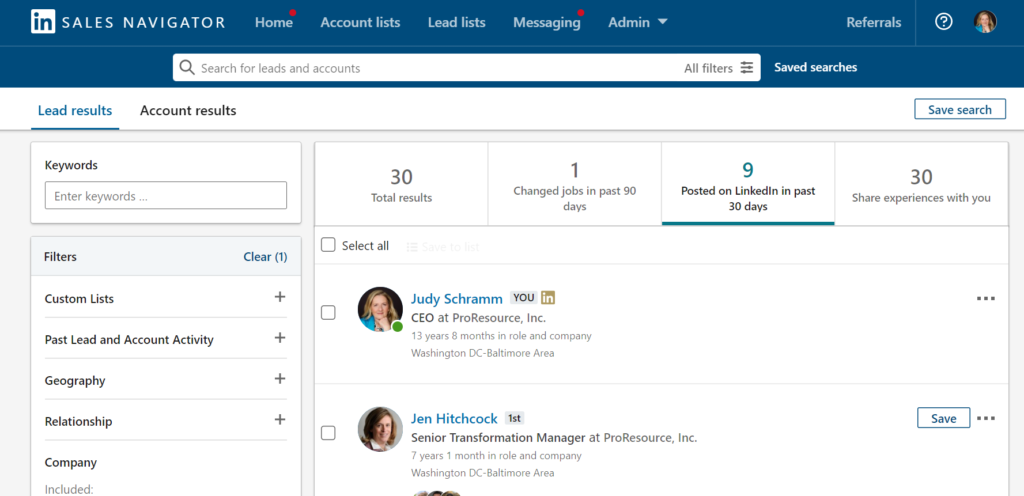
You can then click through to see what your employees post, like, and comment on.
This gives you opportunities to welcome new employees who post about starting their job, congratulate employees who receive awards, and compliment teams on a job well done.
Be Creative with Kudos
Congratulating and complimenting employees on milestones and accomplishments is particularly powerful. Public praise is not only visible to your whole team, but also to your employees’ networks, which makes them look good to their peers and friends.
One way to show appreciation is to engage with employee posts with a simple comment. For a more powerful impact, you can use a new feature on LinkedIn called Kudos.
Make Your Posts Interesting
Many people will pay attention to what you post just because you are the boss. But you will be even more effective if you create an environment of engagement that encourages your employees to immerse themselves in your content.
When using LinkedIn for employee communications, it is important to consider the platform as an extension the corporate culture you have worked so hard to build. Make it a safe space for conversation that helps enrich your company’s messaging.
The more value you provide in your LinkedIn posts, the more attention you will garner.
As branding expert Sally Hogshead says, “Don’t be vanilla. Be pistachio.” Show some personality in your LinkedIn communications — do not just use corporate-speak. Be authentically you and share your perspective.
When you share company news, add a comment about why it is so important or so gratifying. Give credit to the team responsible, and let them see that you appreciate their hard work.
When you share industry news or data, explain why the information matters to your company. People value your interpretation, and that gives you the opportunity to frame the story.
How to Avoid Pitfalls
As with any type of public-facing communications, know that at times you will be criticized for your statements or comments. Some pushback is completely normal — and it is authentic. People will say these things anyway, but you can see it in social. But that also gives you the opportunity to add your perspective and address the issues readers bring up.
Study your LinkedIn settings so you know how to turn off comments, if a discussion is getting out of hand, and how to block trolls.
Everyone makes mistakes, and know that at some point you will too. With that in mind, make sure you learn how to edit posts after they are published and how to delete them.
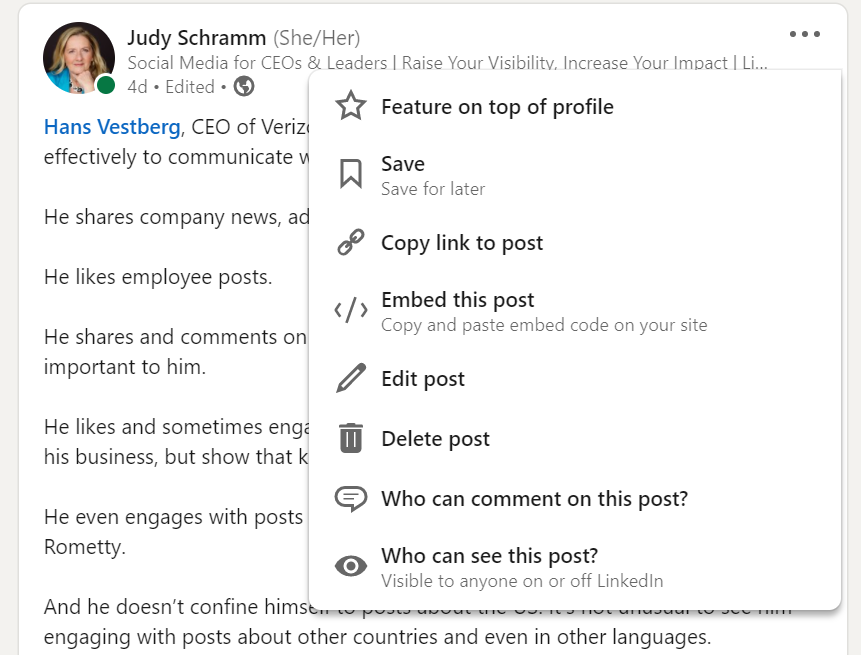
If you feel unsure about a message, wait to post it until you have had the chance to run it by a diverse group for honest, constructive feedback.
In the end, a company is only as strong as its people. And you have a powerhouse team. As a leader, how are you using LinkedIn to make everyone on your team feel connected to the cause — even if they are not in the same room?
Need Help Getting Started?
At ProResource, we help executives use social media effectively. If you want to use LinkedIn to engage with employees and be a better leader, we would love to work with you.

